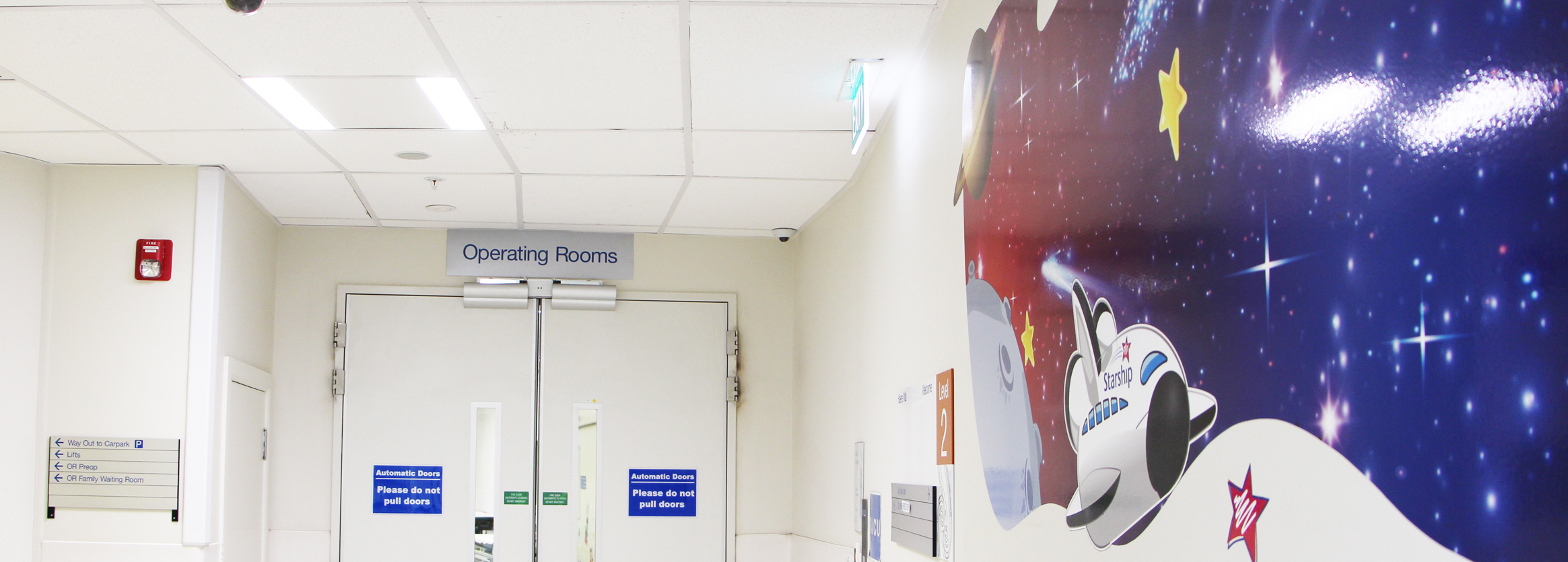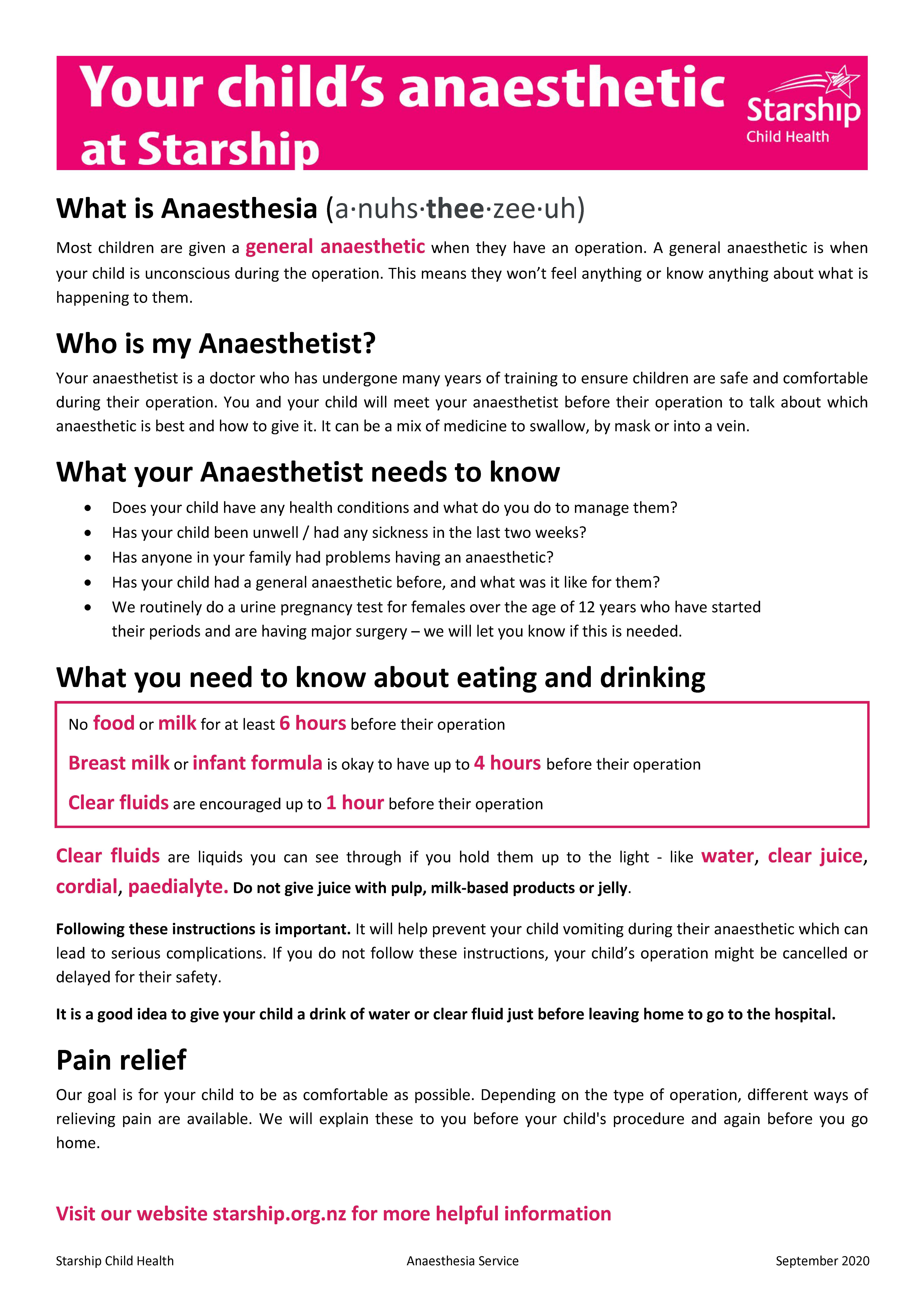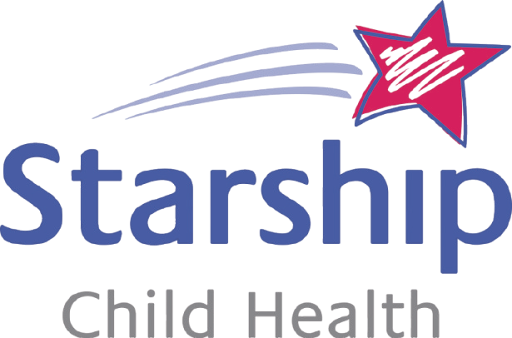Your child's anaesthetic

Download a PDF copy of the anaesthesia information by clicking the image to the right.

What is anaesthesia? (a•nuhs•thee•zee•uh)
Most children are given a general anaesthetic when they have an operation. A general anaesthetic is when your child is unconscious during the operation. This means they won’t feel anything or know anything about what is happening to them.
Who is my Anaesthetist?
Your anaesthetist is a doctor who has undergone many years of training to ensure children are safe and comfortable during their operation.
You and your child will meet your anaesthetist before their operation to talk about which anaesthetic is best and how to give it. It can be a mix of medicine to swallow, by mask or into a vein.
What your Anaesthetist needs to know
Does your child have any health conditions and what do you do to manage them?
Has your child been unwell / had any sickness in the last two weeks?
Has anyone in your family had problems having an anaesthetic?
Has your child had a general anaesthetic before, and what was it like for them?
We routinely do a urine pregnancy test for females over the age of 12 years who have started their periods and are having major surgery – we will let you know if this is needed.
Feeling unwell before the operation?
If there is a change to your child's health that has required medical attention or hospitalisation since your appointment with the surgeon OR your child has any of the following symptoms within 3 days of the operation, please let us know:
Please call and speak to the surgical booker on 0800 728 436 |
What you need to know about eating and drinking
No food or milk for at least 6 hours before their expected arrival at hospital Breast milk or infant formula is okay to have up to 4 hours before their expected arrival at hospital Clear fluids are encouraged up until 1 hour before their expected arrival at hospital |
Clear fluids are liquids you can see through if you hold them up to the light - like water, clear juice, cordial, paedialyte. Do not give juice with pulp, milk-based products or jelly.
Following these instructions is important. It will help prevent your child vomiting during their anaesthetic which can lead to serious complications.
If you do not follow these instructions, your child’s operation might be cancelled or delayed for their safety.
It is a good idea to give your child a drink of water or clear fluid just before leaving home to go to the hospital.
Getting your child ready for their operation
Read our tips on preparing your child for their hospital visit here.
Can I be with my child while they have the anaesthetic?
Your anaesthetist will talk about this with you. One parent may be able to go into the operating theatre with your child at the start of their procedure. Once your child's anaesthetic has started, you will have to leave and return to the waiting area.
If your child is younger than nine months old, is very sick or their operation is urgent, you may not be able to go into the operating theatre.
No photos or videos are allowed in the operating theatre.
What happens after the operation?
After their operation, your child will go to the Post Anaesthesia Care Unit (also called PACU or the recovery room). The nurses will work with the anaesthetist and surgeon to make sure your child is comfortable and recovers safely from their anaesthetic. Sometimes children can be restless when they are not fully awake and might need some extra medicines to help them. The PACU nurse will let you know when your child is awake and ready for you to see them.
Pain relief
Our goal is for your child to be as comfortable as possible. Depending on the type of operation, different ways of relieving pain are available. We will explain these to you before your child's surgery, and again before you go home.
Going home
Most operations are ‘day stay’ which means your child can go home on the same day. It takes several hours to prepare your child for surgery and for them to recover from the anaesthetic. Please allow for this when planning your day. Before you leave hospital we will give you a plan for any follow-up appointments, prescriptions for medicines and how to use them, and any other advice for your child’s recovery.
What's next?
About the Starship operating rooms
Before your visit
Preparing your child for their hospital visit
Find your way around
